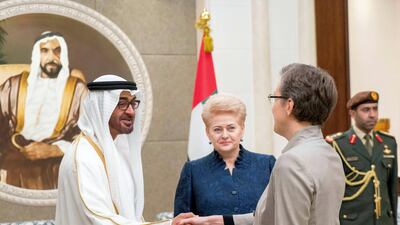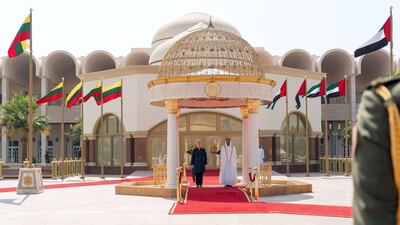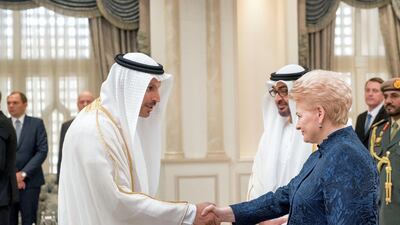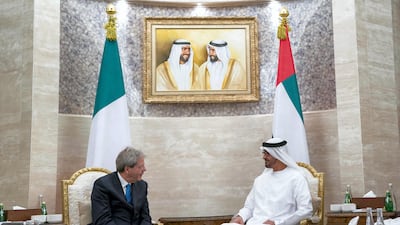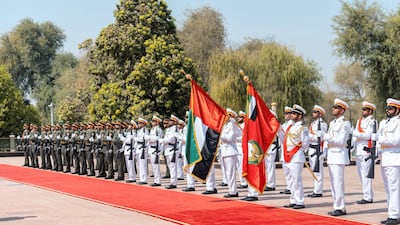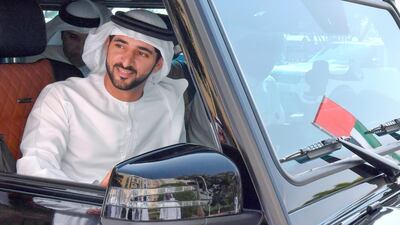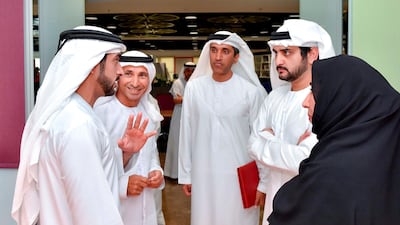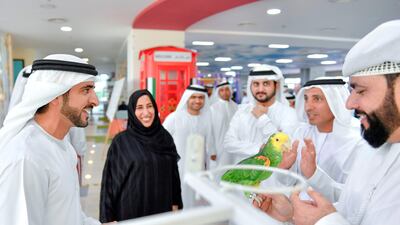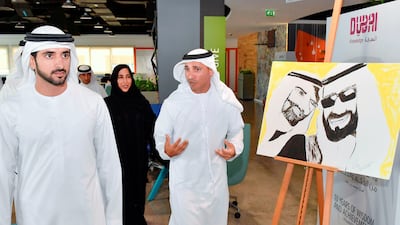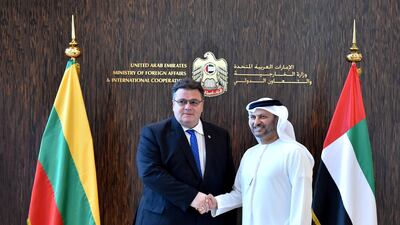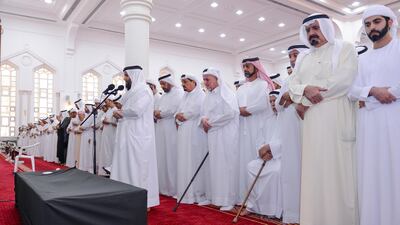Sheikh Mohammed bin Zayed, Crown Prince of Abu Dhabi and Deputy Supreme Commander of the Armed Forces, received Dalia Grybauskaite, President of the Republic of Lithuania, at the Al Mushrif Palace on Tuesday.
Official reception ceremonies were held at the palace court upon the Lithuanian president's arrival, then she and Sheikh Mohammed discussed co-operation between the two countries in various fields.
Both sides discussed bilateral relations and the importance of their development in economic, commercial, and investment fields, especially in the area of renewable energy, advanced technology, innovation and agriculture.
Dr Anwar Gargash, Minister of State for Foreign Affairs, discussed the latest regional and global developments with his Lithuanian counterpart, Linas Linkevicius, in the capital on Tuesday too. During the meeting, which held at the ministry's premises and attended by Dr Ahmad bin Abdullah Al Falasi, Minister of State for Higher Education and Advanced Skills, the two ministers also discussed prospects for joint co-operation in future skills and advanced technology.
In Dubai, Sheikh Hamdan bin Mohammed, Crown Prince of Dubai and Chairman of Dubai Executive Council, visited the Knowledge and Development Authority with Sheikh Maktoum bin Mohammed, Deputy Ruler of Dubai. During his visit, Sheikh Hamdan directed the KHDA, to draft a plan to increase the percentage of Emirati pupils admission in private schools over the next three years. He also reviewed the 'Comprehensive Survey of Student Quality of Life in Dubai 2017', which will provide data to government and schools to help improve pupils’ quality of life.
In Ajman, Sheikh Humaid bin Rashid Al Nuaimi, Ruler of Ajman, and Sheikh Ammar bin Humaid Al Nuaimi, Crown Prince of Ajman, attended funeral prayers for Sheikha Nora bint Ali bin Rashid Al Nuaimi, wife of Abdulla Al Ghurair, at the Sheikh Zayed Mosque in the Al Jurf area. She died on Monday.
